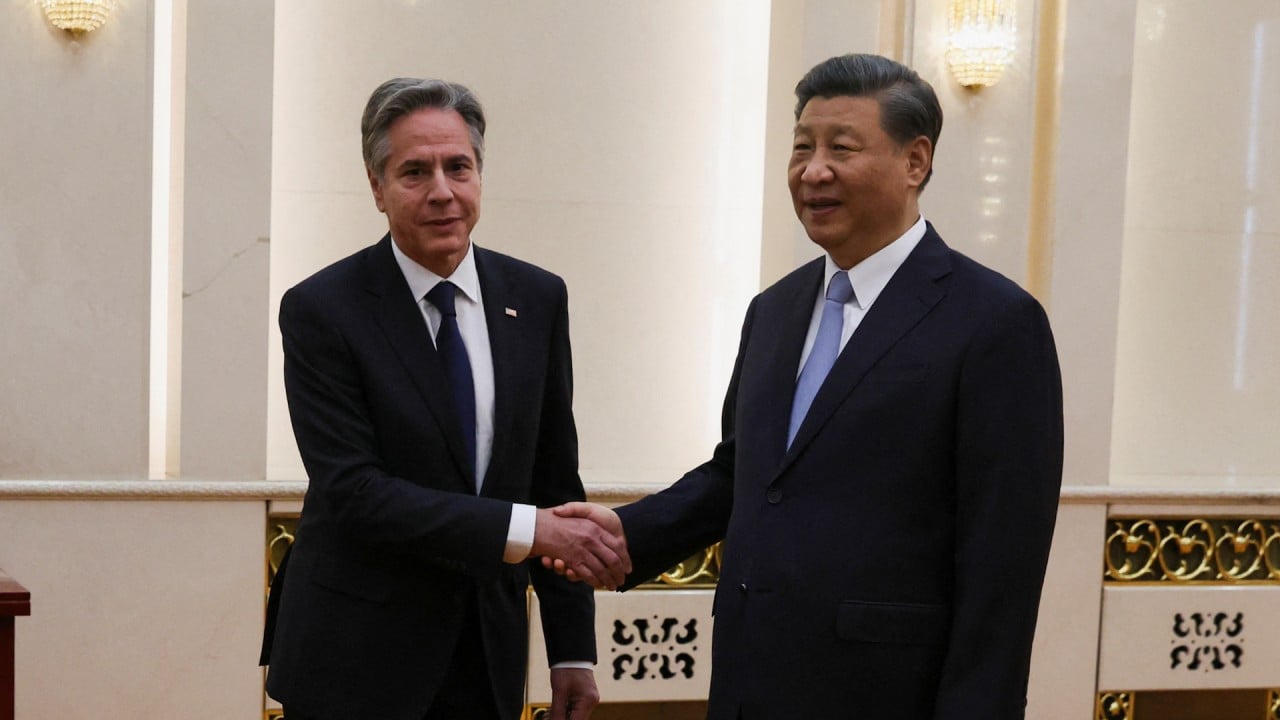
China’s Wang Yi calls for ‘Kissinger-style diplomatic wisdom’ as veteran US statesman visits Beijing
- Top Chinese diplomat tells former secretary of state it is ‘impossible’ to contain China during his surprise visit to Beijing
- Wang also issues stern warning on Taiwan, urging Washington to publicly oppose independence for the island
US to blame for poor relations, Chinese defence minister tells Kissinger
On Wednesday, Wang hailed Kissinger’s “historic contributions” and “irreplaceable role” in US-China relations, saying US policy towards China required the “diplomatic wisdom” of Kissinger and the “political courage” of former US president Richard Nixon, whose historic visits to China in the 1970s paved the way for the normalisation of US-China ties.
“China cherishes friendships established with old friends,” Wang said. “China maintains a high degree of continuity in its policy towards the United States, and fundamentally follows the principles of mutual respect, peaceful coexistence, and win-win cooperation proposed by President Xi Jinping.”
“China’s development has strong endogenous momentum and inevitable historical logic. It is impossible to try to transform China, and it is even more impossible to encircle and contain China.”
According to the Chinese foreign ministry, Kissinger said although he was not in public office, he cared about US-China ties and supported recent efforts to improve relations.
Kissinger said the stability of Sino-American relations was a matter of global peace, and trying to contain China was “unacceptable”, according to the ministry.
“No matter how difficult it is, both sides should treat each other as equals and maintain contact. It is unacceptable to try to isolate or separate from each other,” the ministry quoted Kissinger as saying.
Kissinger added he believed Washington’s pledge on the one-China policy laid out in the Shanghai communique would not be betrayed, according to the ministry.
As US-China ties hit new lows, are diplomatic backchannels still effective?
Wang, meanwhile, issued a stern message on Taiwan, saying Taiwanese independence was “incompatible” with peace in the Taiwan Strait and the US must strictly abide by the one-China principle established in the Shanghai communique.
“If the US sincerely wants stability in the Taiwan Strait, it should take actions to clearly and publicly oppose Taiwanese independence and draw a clear line from separatist activities by Taiwanese independence forces,” Wang said.
The two also discussed Ukraine and artificial intelligence, the Chinese foreign ministry said, without elaborating.
Asked about Kissinger’s trip on Tuesday, US State Department spokesman Matthew Miller said the 100-year-old did not represent the US government and Beijing informed Blinken about the trip during his visit to China last month.

 - Kawala Xie.jpg?itok=NogZcyZ-&v=1661304068)
